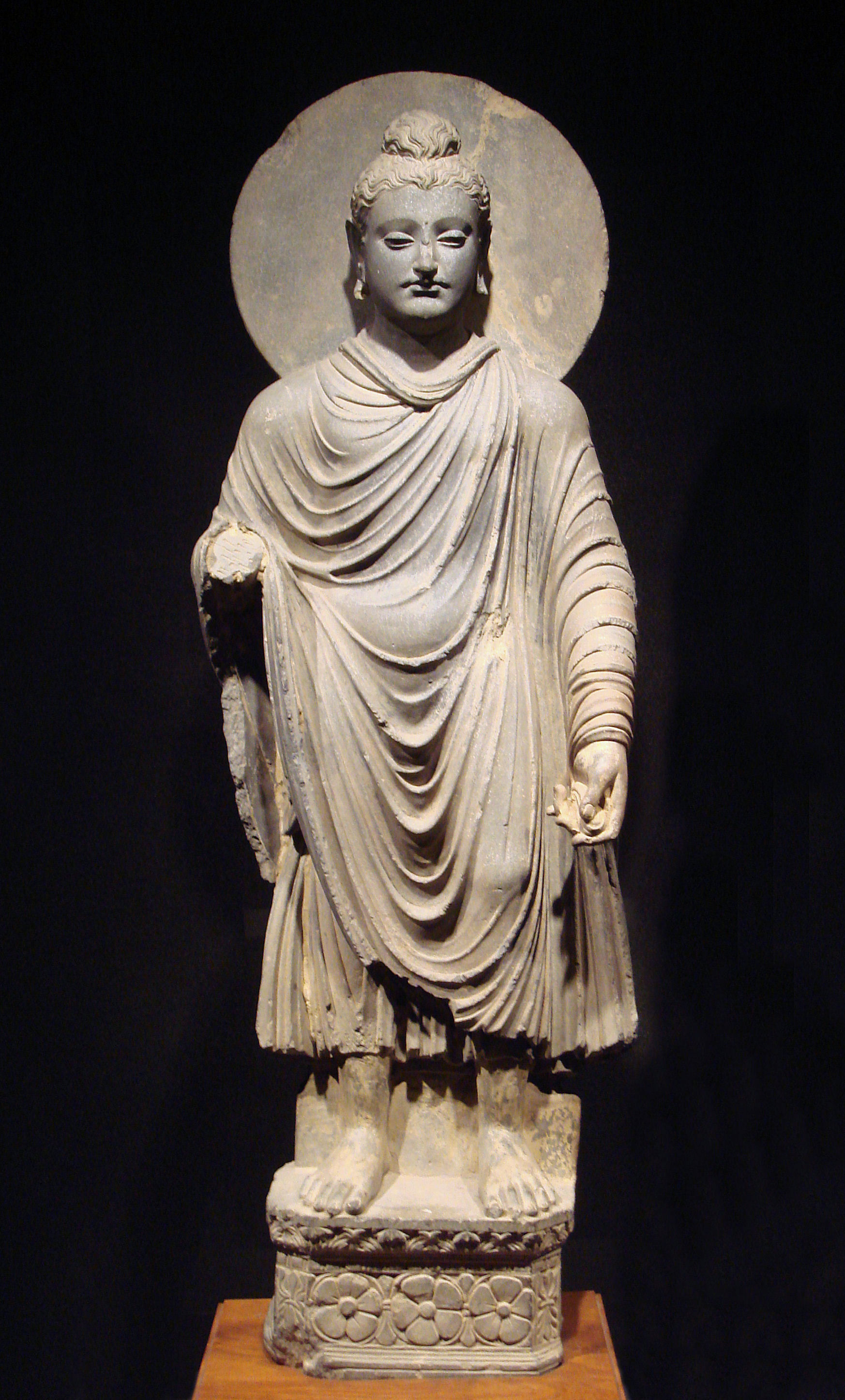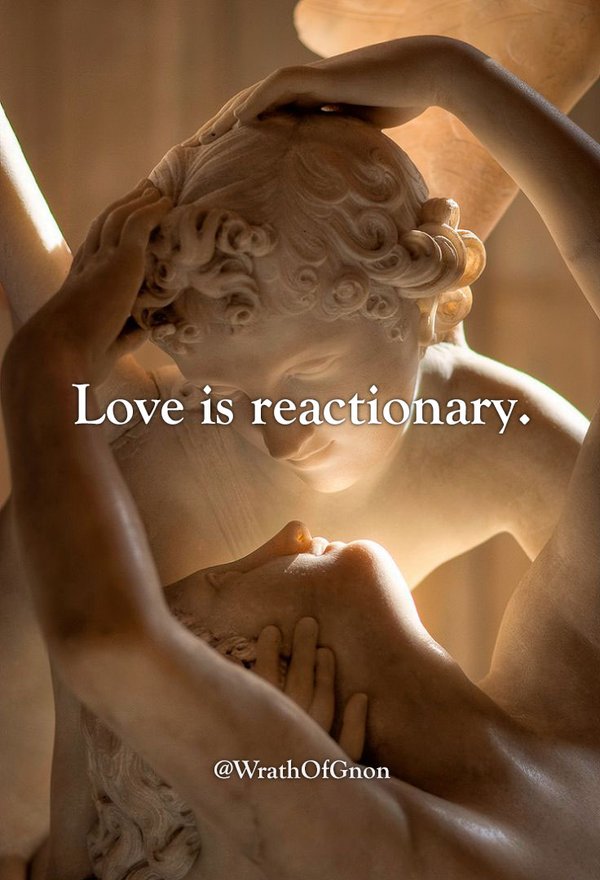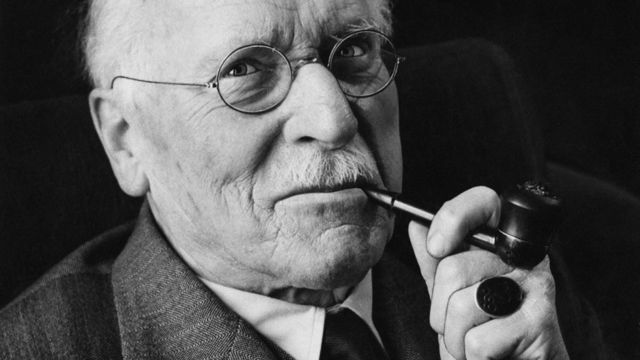The perennial philosophy involves the notion that there are certain metaphysical truths that transcend any particular culture: that there is essentially just one wisdom tradition and it identifies a hierarchy of being ranging from physical reality to mind, to soul, to spirit. The wisdom tradition suggests that all reality has a divine and spiritual origin and as such all levels of reality are good.
All human cultures have religious foundations. Unfortunately, this is because the false sacred has provided the basis for human community. The false sacred can be seen when scapegoat victims are divinized both before and after immolation. Before immolation the victim is blamed for society-wide chaos which thus attributes to the person godlike abilities to disrupt. The person is thought of as satanic. After the victim is killed and peace is achieved, the victim is now thought of as a positive god and is thanked for his “sacrifice.” The ambiguity of the word “sacrifice” in English elides the difference between “thyein,” meaning sacrifice as the lynching of the victim and “askesis,” which means sacrifice in the sense of renouncing something, such as giving up mimetic rivalry. From the point of view of the mob, the victim is imagined to have willingly died to save the community. The truth is that the victim was unjustly murdered.

Peter Paul Rubens, “The Crucifixion” (1620)
Human culture owes its existence to the shedding of innocent blood. However, Christianity reveals the scapegoat mechanism. The supporters of Jesus defied the majority and vocally protested Jesus’ innocence, pointing out the “thyein” aspect of his murder/sacrifice. Normally, the point of view of the victim is absent because with the death of the victim, only the voice of the crowd remains. The courage to support the victim is usually missing both because of the fear of sharing the victim’s fate and because of the tendency to imitate other people and for a person to imagine that he is wrong when faced with unanimous opinions that contradict his own.
The perennial philosophy points to the real sacred that is unrelated to the false sacred. The real sacred is the Great Chain of Being and is discovered by mystics who communicate their findings to the rest of us. Plato was a real mystic, as was Jesus. Hinduism and Buddhism have provided similar insights in the East and Sufis in the Middle East. But, though these other religions support the perennial philosophy, they show no particular awareness of the scapegoat mechanism which will compromise their adherents’ ability to “love your neighbor as yourself.”
Plato and Christianity provide the moral and intellectual basis for what has become Western civilization. The West is most aware of the scapegoat mechanism because of Christianity but it still has only a partial understanding. The West continues to scapegoat through selective indignation and remains unaware that the king or anyone in a similar position is also a likely candidate for immolation. In fact, whoever the American president is, it is certain that groups of people will bond with others in shared hatred. Unaware of what they are doing, they do so with a clear conscience. Like the Picture of Dorian Gray, they will look in the mirror and see only sweetness and light while the truth will be hidden in the attic of their souls.
Divine intervention was necessary to finally reveal things hidden since the foundation of the world. God gave his only Son so that the Paraclete – the Holy Spirit and defender – may defend the would-be victim from his accusers. Imperfect as it was, the followers of Jesus needed superhuman courage to continue to defend the Crucified One.

J.N. Sylvestre, Sack of Rome by the Visigoths on 24 August 410 AD
Western civilization shares common roots but is made up of different cultures with their own traditions. Thus the West has been bequeathed a historically agreed upon canon of great literary works each with its distinctive cultural flavor. Since great works of art reveal aspects of the human condition to their readers, transcendent truths are the result. Great works of art transcend culture while arising from a particular culture. Dostoevsky’s novels and characters are identifiably particular and Russian. As a result there is the slight paradox that the universal is found through the particular. Likewise, some of the best classical music integrates local folk music traditions, such as dances or beer hall music, and benefits from the infusion. A generic novel that takes place in no particular culture, real or imagined, with generic characters is by definition a bad novel.
Globalism is a sin and a misunderstanding. Brexit and the election of Donald Trump seem to be a repudiation of this error. The liberal elites that dominate Western education, media and government embrace globalism as an ideal with a tendency to think in terms of “citizens of the world” and the like. Their ideal person is a deracinated rootless cosmopolitan, as happy to live in Berlin as he is in London or New York. With no allegiance or loyalty to any country he is a mercenary – an economic soldier for hire. Such a person tends to regard anyone with ties to a unique country and culture as culturally and morally retarded, perhaps xenophobic and in need of enlightenment.
Governing elites in most Western countries have characterized globalism as right thought. It is a top down imposition of an ideology that is hostile to national sovereignty, threatening the cultural integrity in those countries where it is promulgated. When musicians in, for instance, China or Japan, decide to devote themselves to playing Western music, this is an example of a bottom up, individual decision. If individuals in different in non-Western countries choose to read Shakespeare or listen to Bach, that is unproblematic. If a national leader decides to open a nation’s borders to literally millions of immigrants who do not share the native culture and whose cultural values are largely incompatible with the native culture then this is a kind of violence. It is a top down imposition on an unwilling populace. It reduces diversity by further damaging whatever cultural integrity can be said to remain in countries like France and Germany.

Gandhara Buddha in Greco-Buddhist style (C. 1st-2nd AD)
The errors of globalism have a metaphysical corollary. Buddhists make a distinction between the Absolute and the Relative. The Absolute is the realm of timeless Spirit. In this realm, no real separateness or distinction exists. All is One and the One is divine, no matter its manifestation. Creation, however, is the realm of the Relative. Here uniqueness and individuality exist. Biological survival would be impossible if an organism did not make distinctions within its environment and make judgments concerning what is important. With humans, even though a mystic may assert that a speck of dust is as divine as an ape, as a practical matter in the realm of the Relative, it is morally necessary to worry more about the ape than the dust speck. The ape is rarer and has greater depth of consciousness.
Liberals claim to like “diversity” but their globalism leaps immediately to the Absolute and rejects difference. Liberals suffer from the pathology of Don Juan. Don Juan loves and desires women. In that regard, he is no different from any other man. However, his manner of loving is one that refuses to make distinctions. He loves the young and the old, the beautiful and the ugly, the fat and the thin. He will have sex with all of them. He does not discriminate!
Sleeping with thousands of women means thousands of fatherless children and husbandless women. It means using someone merely to satisfy sexual desire. Having achieved that limited goal, the woman is dumped and Don Juan moves on to the next. Don Juan’s “love” is effectively nonexistent.
A man who really loves women, finds a particular woman to love. This generic desire for women is only truly loving when directed at one woman. To remain at that universal Absolute level in practice is an obscenity. Real romantic love entails admiration, respect and trust. Love involves an appreciation of uniqueness. Intimacy requires loving a particular person with all his or her faults and virtues.
 If a man were to say “the thing I love about you is that you are a generic woman. I cannot tell the difference between you and anyone else. I do not love you because of your uniqueness but because I love indiscriminately” then the relationship would be terminated. After all, who is relating to whom?
If a man were to say “the thing I love about you is that you are a generic woman. I cannot tell the difference between you and anyone else. I do not love you because of your uniqueness but because I love indiscriminately” then the relationship would be terminated. After all, who is relating to whom?
If the participants in a culture do not express a preference for its own traditions and ways of doing things, if members of a family have no special attachment to that family in particular then that culture and that family are finished. All cultures do and should view with suspicion someone who expresses no favoritism, no loyalty, no preference with regard to his own culture. Such a rootless person is a threat to the continued existence of that culture. Likewise, if there is no special attachment to a spouse and children in particular, that spells the end of that family.
Some nihilists have claimed that the universe is an uncaring and loveless place. However, this is not true. If the universe is to love us, that love has to be made manifest. And love can be made manifest only in the particular. It is possible to love in general but the manifestation of that love only occurs one by one. The universe shows its love for us by providing us with parents who have a special emotional attachment to their children in particular, not to children in general. They take a special care and interest in their own children’s upbringing. They display favoritism.
Now, in loving a family and a spouse, a person is not suggesting that someone else’s family and spouse are not deserving of love too. Likewise, when someone prefers his culture over someone else’s way of doing things, he is not saying that the other person’s culture is unlovable or not deserving of loyalty. The continued existence of cultures and families is a good thing and for that, preferences, attachment and favoritism are required. Particularity, individuality and diversity only exist in the realm of the Relative, and all cultures are particular. Globalism is not particular, but neither is it a “culture.” Instead, it means the end of culture and most especially of diversity, the very thing it is supposed to promote. Globalism equals uniformity.

Father and Mother at “Manif pour Tout” rally.
The Principle of Plenitude, part of the wisdom tradition, claims that everything that can exist should exist, provided there is room for it. What is intended by this notion is that if there are twelve species of whales, this is better than killing eleven of them and just having one left. There is something good and beautiful about having Humpbacks, and Right Whales, and Blue Whales, and all the rest.
Cultures and families exist because they are cherished and privileged by their participants. If I love my neighbor’s wife and children as much as my own and act accordingly, this will cause my own family to dissolve and put me in conflict with my neighbor.
Diversity is achieved by relative isolation between cultures; by cultures adhering to traditions peculiar to that particular culture. Each group develops cultural practices that suits its climate, geography and native temperament and is partly the product of these factors.
Modes of behavior appropriate and good in warm Tahiti, involving life style, choice of clothes, manner of cooking, what is cooked, etc.. will not be appropriate and good in cold Sweden. The differences between Tahitian and Swedish culture are good and beautiful. Maintaining these differences is the only way that cultural diversity is promoted. Cosmopolitanism abolishes differences and preferences into a jumble and mishmash.
Western ethnomasochism means that since the West hates itself so much, because it has been trained to focus on its flaws instead of celebrating what is good about itself, many of its participants imagine that anything that dilutes its “Westernness” will be a boon. Hence, it is the home and birthplace of globalism. Globalism requires self-hatred as much as generic love.
The Chinese do not suffer from this problem. To say that the Chinese would benefit from “diversity” and that it should welcome Westerners and Middle-Easterners into its country so it will be more diverse and therefore better would be morally objectionable. To look around and see only Chinese faces and to find something problematic about that is truly bizarre. What is true for China, is true for any culture.

Indigenous European girls in local national dress.
Moral development goes from egocentric, to ethnocentric, to worldcentric. If ethnocentrism is abandoned, it is impossible to get to worldcentrism. The phrase “transcend and include” sums up the correct state of affairs. Anyone who abandoned ethnocentrism would devolve backwards to egocentrism. To say, “I am not Hindu or Indian, I am a human being” is to reject the very culture that produced the person. Is it not a good thing that dishes come in different flavors? Is there not more than one path up the mountain? Why cannot the young man be a Hindu and an Indian, as well as being merely a human being? Do not fall too much in love with the abstract. Do not be Don Juan. Be the loving father and husband who loves the particular.
Jews have a saying that to save a person is to save a world. This points to human uniqueness and irreplaceability. Without this, the injunction not to murder would be lessened and the ability to love would be damaged. If a person is merely any old human being, then that person is interchangeable and the person’s death of not great moment. A person’s identity includes cultural, biological and social aspects, without being reducible to any one of those things; for there is also a person’s reaction to each one of those elements, as well as more fine-grained factors having to do with a person’s particular family.
People want to be loved and understood as unique individuals. “I am a human being” might be something to say if a person is in danger of not being considered morally important. But it is no good as a philosophy of life or as a way to approach other people. People have need of friends and friendship; but these things do not exist in the abstract, only the particular. “I love you because you are human” is not what any of us want to hear.
Very large corporations which are part and parcel of globalism tend to be a problem precisely because they are international. They lack loyalty and emotional allegiance. Thus the tendency is to do what is in the corporation’s interest, not what is good for any particular country. The lack of local ties also means that corporations can threaten to leave any country that does not behave towards it in the manner it desires. In some cases, large corporations can hold a country to ransom. They can also “buy” a government.

“Identitarian” street art in Western Europe.
More ethnocentrism is needed to rectify the situation with regard to corporations, not less. The philosophical situation is perhaps comparable to the injunction to “love your neighbor as yourself.” For this to work, someone must love himself first. Care starts with oneself and then radiates outward in ever-expanding circles.
Philosophers like Nassim Taleb point out that many things are not scalable. Small corporations do not have correspondingly smaller abilities to blackmail governments or hold them to ransom. They cannot do it at all. They do not buy out fewer congressmen. They buy out none whatsoever. Small is beautiful. On the topic of the threat of very large international corporations, liberals and traditionalists can perhaps agree.
The perennial philosophy identifies religious and metaphysical truths that underpin any well-functioning culture. It suggests that one’s neighbor should be loved as oneself. It can be seen as the product of Creative Spirit potentially shining through any particular culture. But modes of life, traditions and customs, must be adapted to different climates and temperaments. They are also the result of distinct geographical factors, demographics and items like the existence or nonexistence of draft animals. In fact, the Principle of Plenitude, part of the perennial philosophy, suggests that the more the merrier, provided there is room. Love in the Absolute is made manifest in the Relative; and in the celebration of uniqueness and individuality; in the concrete. It is a male disease to be infatuated with the abstract and to lose sight of the concrete. The feminine genius tends to be better at focusing on the particular. A multiplicity of cultures, traditions, or musical traditions and instruments adapted for instance to the Steppes of Russia, Asia and Mongolia is good in itself. It would be horrible to replace them with canned pop music imported from the West and that is the sort of thing promoted by globalism and notions like being “a citizen of the world.”
If a person chooses to read works from the greatest authors in the Western canon in preference to his own country’s perhaps meager offerings, that is a bottom up decision. If Dostoevsky seems to throw more light on the human condition than Janet Frame for a New Zealander it would seem to be partly because New Zealanders and Russians are both Western with certain commonalities. In practice, however, people from both countries would experience culture shock if transplanted.
 While Chaplain for West Sweden, my father’s church in Gothenburg served as a gathering point for migrants from different countries, many of them African. Up to fifty different languages were represented. They mostly shared the Christian religion and a knowledge of English in common. Such a group would seem to have something of the character of lost sheep. International students at graduate school in the US have a similar status. In both the Swedish case and the American, the immigrants will tend to scapegoat the host culture somewhat. What all have in common is that each is foreign and confronted with an unfamiliar culture. In such a context, it is only possible to focus on generic commonalities. There is something interesting about meeting people from other cultures and having the shared bond of foreignness offering an emotional and social connection. This encountered diversity, however, only exists because of differences and the cultural integrity of the countries from which each person comes. If the immigrants are emotionally and intellectually healthy it is because their birth culture had those characteristics too.
While Chaplain for West Sweden, my father’s church in Gothenburg served as a gathering point for migrants from different countries, many of them African. Up to fifty different languages were represented. They mostly shared the Christian religion and a knowledge of English in common. Such a group would seem to have something of the character of lost sheep. International students at graduate school in the US have a similar status. In both the Swedish case and the American, the immigrants will tend to scapegoat the host culture somewhat. What all have in common is that each is foreign and confronted with an unfamiliar culture. In such a context, it is only possible to focus on generic commonalities. There is something interesting about meeting people from other cultures and having the shared bond of foreignness offering an emotional and social connection. This encountered diversity, however, only exists because of differences and the cultural integrity of the countries from which each person comes. If the immigrants are emotionally and intellectually healthy it is because their birth culture had those characteristics too.
The question also arises whether Gothenburg is improved by the presence of these immigrants. It is hateful and disrespectful towards Swedish culture to suggest that it is. The question is whether the functioning of the local community is impaired by the presence of the foreigners and that will depend on the sheer numbers involved and also by how compatible the cultural beliefs and practices of the immigrants are.
A United Nations conglomeration of immigrants can only exist because differences exist. Where there is no coherent and unified culture binding people together then it is necessary to retreat to a higher level of abstraction, i.e., a common humanity or as creatures of God, or some such. Encountering people from different cultures can be stimulating. There is the thrill of exoticism. But if the locals lose their preference for their own culture in fascination with the other, then the world becomes less diverse, not more.
 Adj. Prof. Richard Cocks teaches philosophy at SUNY Oswego. Originally from Christchurch, New Zealand, he is presently based in the United States. Dr. Cocks is an editor and regular contributor at the Orthosphere and has been published at The Brussels Journal, People of Shambhala, The John William Pope Center for Higher Educational Policy and the University Bookman.
Adj. Prof. Richard Cocks teaches philosophy at SUNY Oswego. Originally from Christchurch, New Zealand, he is presently based in the United States. Dr. Cocks is an editor and regular contributor at the Orthosphere and has been published at The Brussels Journal, People of Shambhala, The John William Pope Center for Higher Educational Policy and the University Bookman.
SydneyTrads is the web page of the Sydney Traditionalist Forum: an association of young professionals who form part of the Australian independent right (also known as “non-aligned right”).





Leave a comment